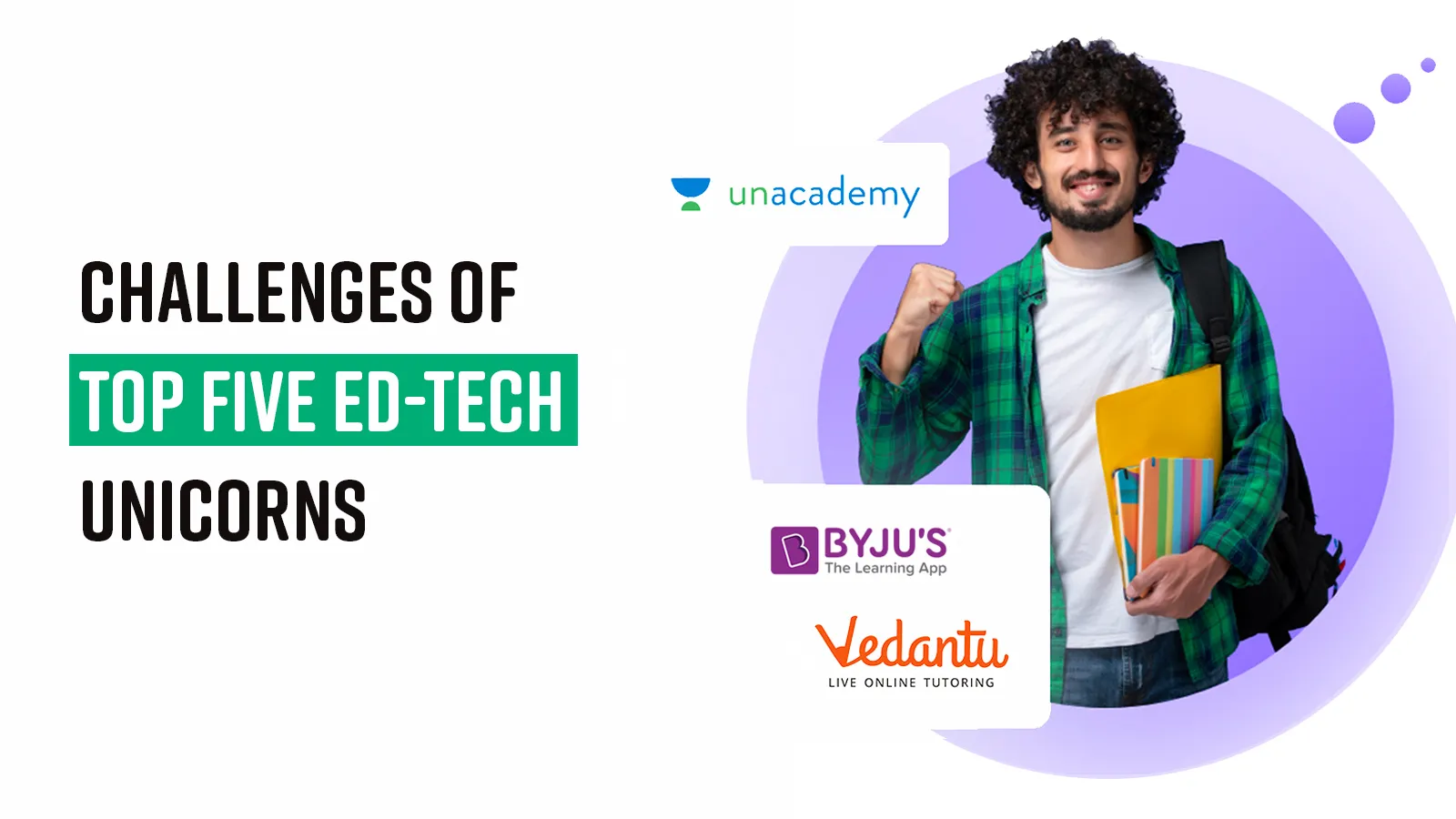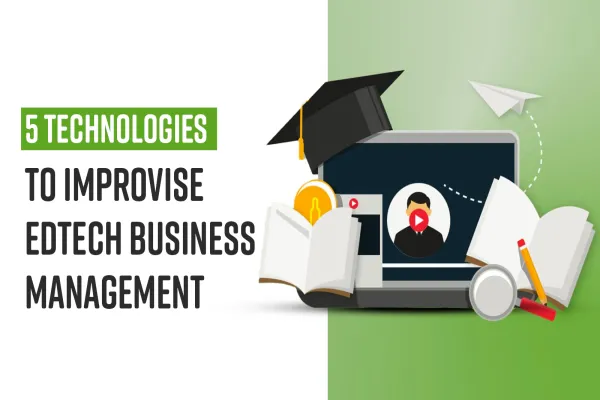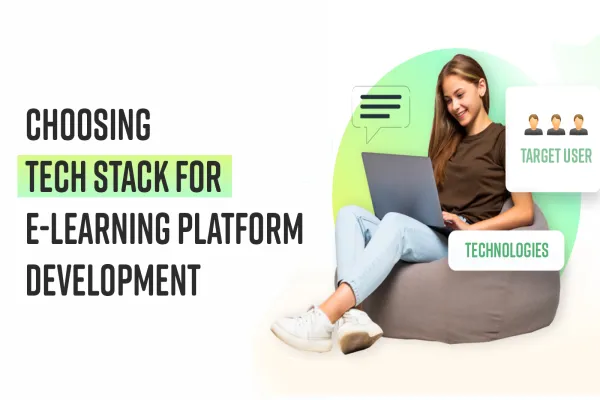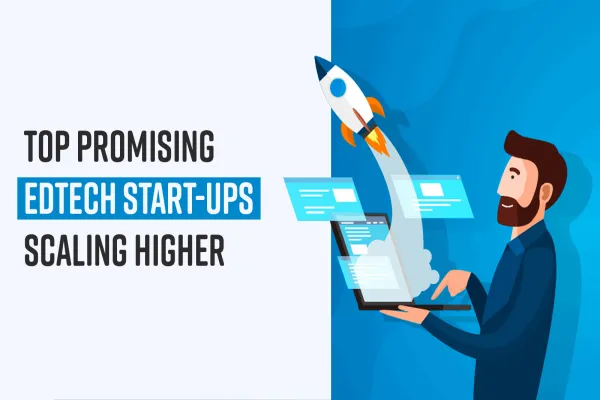The EdTech or education technology sector was among the least funded sectors in India till 2019, but with the rise in remote learning, the ed-tech sector saw more start-ups and investors’ money flowing in. Over the last two years, there has been an exponentially rising interest among investors in edtech companies. So, what makes an edtech start-up a success story?
The success of an edtech start-up depends on how satisfied a customer feels with the product and does this product has a long-term vision. Long-term vision can be defined well when a company identifies the pressing pain points of end-users and addresses them with the right digital solution, such as AI, machine learning, and big data, and combines it with the tech stack. In this blog, we list out the fastest growing edtech start-ups in India that address the unique challenges of their end-users through their tech solution.
Byju’s
Byju’s, one of the highest valued edtech start-ups in the world currently, provides personalized learning programs through advanced technologies like interactive 3D learning classes. Byju’s has leveraged its content by reinventing personalized curricula to suit individual students’ requirements. BYJU’s focus has been on delivering quality education with accessibility, use of technology, visualization, and creativity. To create unique solutions, BYJU’s cross-functional team brainstorms together to develop course content that is not yet available around the globe. BYJU’s attains its competitive advantage by building synergy between different global acquisitions, thus creating unique learning platforms.
On the tech side, Amazon Web Services is the cloud platform for its mobile and website app. For gaining a deeper insight into student behavior, BYJU’s uses Amazon Redshift for its data warehouse management.
UpGrad
UpGrad enables students to achieve career goals by letting them learn higher education programs through top global institutes like IITs, the University of Arizona, and more. UpGrad had a learner base of over 2 million as of August 2021, which doubled in just 8 months, thus making it the largest platform offering higher education.
One of the biggest challenges for UpGrad was to overcome the stigma around the credibility of online courses for recruiters and students. The company invests in three core competencies- new programs, product and learning experience, and greater awareness. What sets UpGrad apart from its competitors is a hand-holding technique for each learner, which it bills as ‘student mentorship’. Upgrad makes its website more dynamic and enhances operability due to frameworks like Nuxt.js, in-house editors, and CMS.
Vedantu
Bangalore-based edtech start-up pioneered live online tutoring in 2014 to students aged between 3 to 18 years, with an aim of augmenting lessons from schools. Vedantu also helps students prepare for competitive examinations, primarily medical and engineering exam. Vedantu enables learners to access free recorded lessons through satellite TV, YouTube, and its app. Customized teaching patterns, interactive LIVE classrooms, and doubt clearing sessions are some of its key highlights.
Vedantu worked on the pain point by understanding that classrooms are never fully equipped to solve each query, or match an individual's ability and pace. Vedantu was thus launched to solve the challenge of offline learning model through its next-gen, instinctive platform WAVE (Whiteboard Audio Video Environment). WAVE is the AI-enabled platform, which uses more than 70 parameters to make classes more interactive.
Unacademy
Unacademy helps students prepare for the country's major entrance examinations. Unacademy’s uniqueness emerges from its LIVE classroom sessions through talented educators. All these class sessions are also available offline, which makes it simpler for learners to access videos at their preferred timing from the comfort of their homes. As of February 2022, Unacademy had over 750,000 active paid subscribers.
The company worked on the greatest challenge of democratizing education in India and making education accessible to all. At present, around 70% of the company’s active learners are from Tier-III cities where there is an absence of top educators. Unacademy is now focusing on adding more exams, teachers, and languages into its mixture. Popular tech stacks used by Unacademy include Google Fonts, Google Analytics, HTML 5, iPhone / Mobile Compatible, SPF, and Viewport Meta.
LEAD
Founded in 2012, LEAD acts as an enabler for schools where they can combine pedagogy, curriculum, and technology into their learning and teaching systems. The company claims to have over 5,000 schools, serving over 2 million students across 500 cities in the country. LEAD invests its resources in building integrated and exceptional learning environments.
Digitizing and transforming inexpensive private schools to cater to the students from moderate and low-income households is the challenge addressed by LEAD schools by creating an integrated system. LEAD schools’ business success comes from running school management software applications. It is the full-stack retraining, assessment, and education solution for the small towns. The unique characteristics of the software include course content delivery, teacher’s training, instructor performance management, and student learning surveillance.





